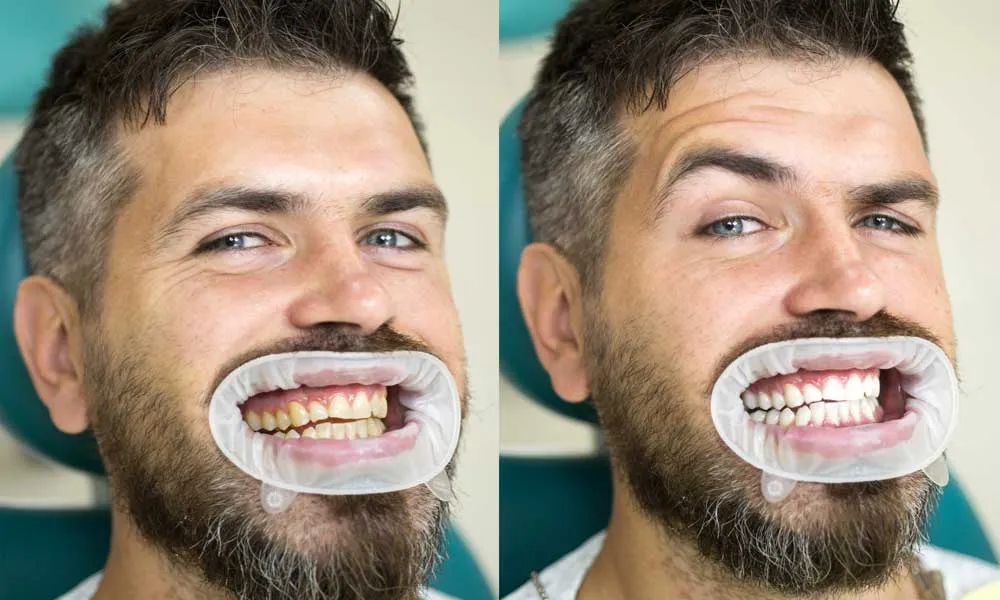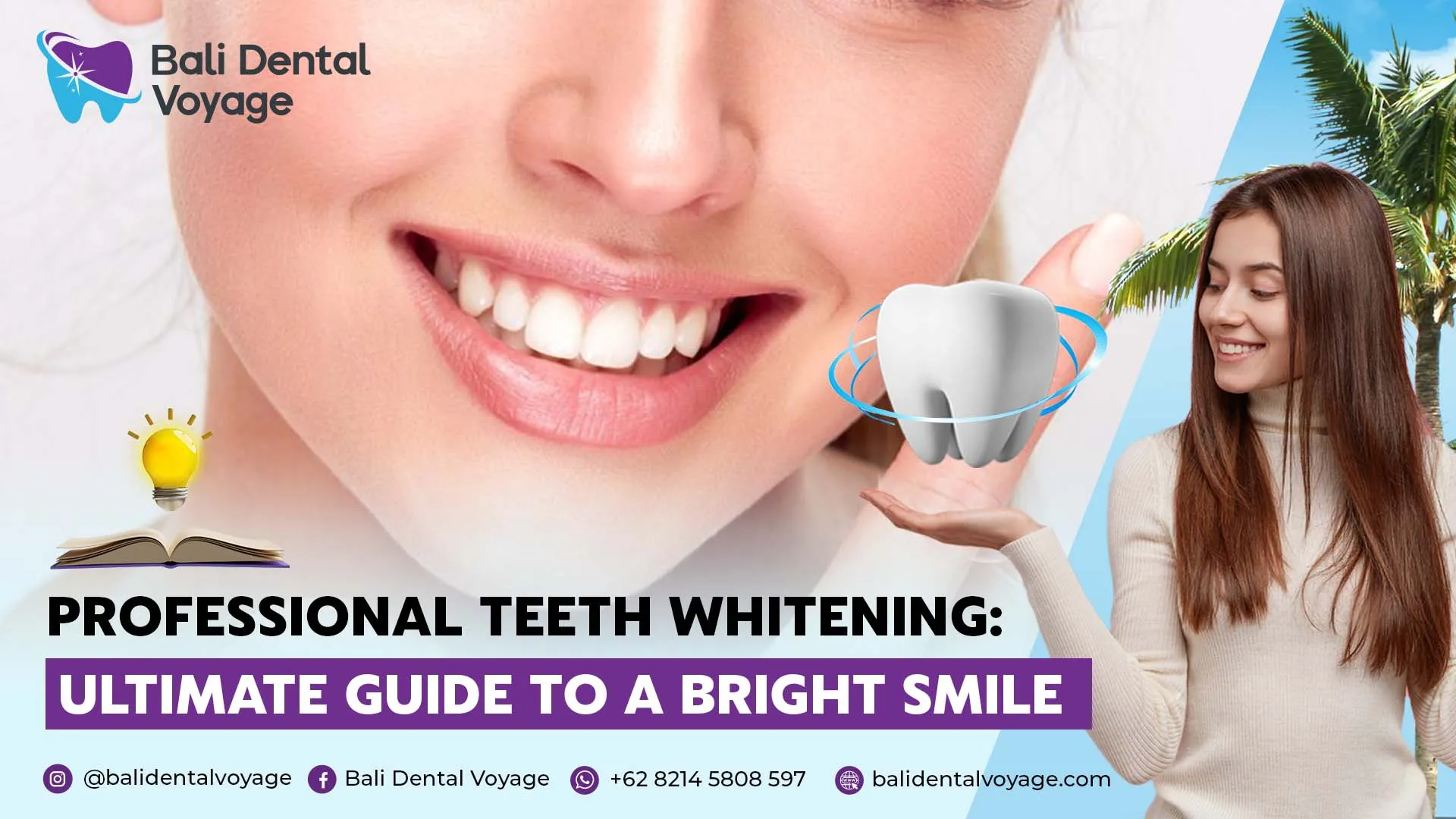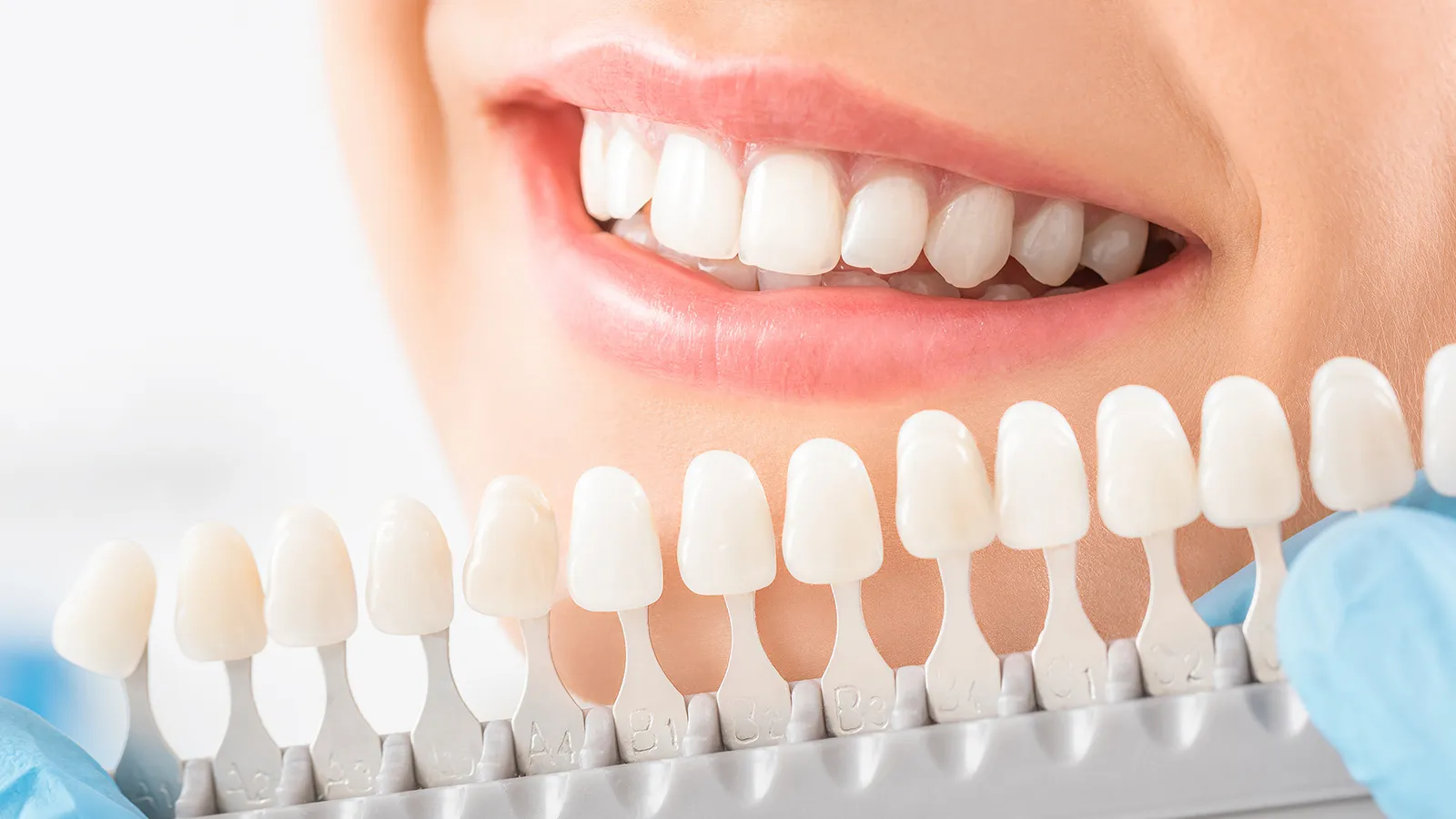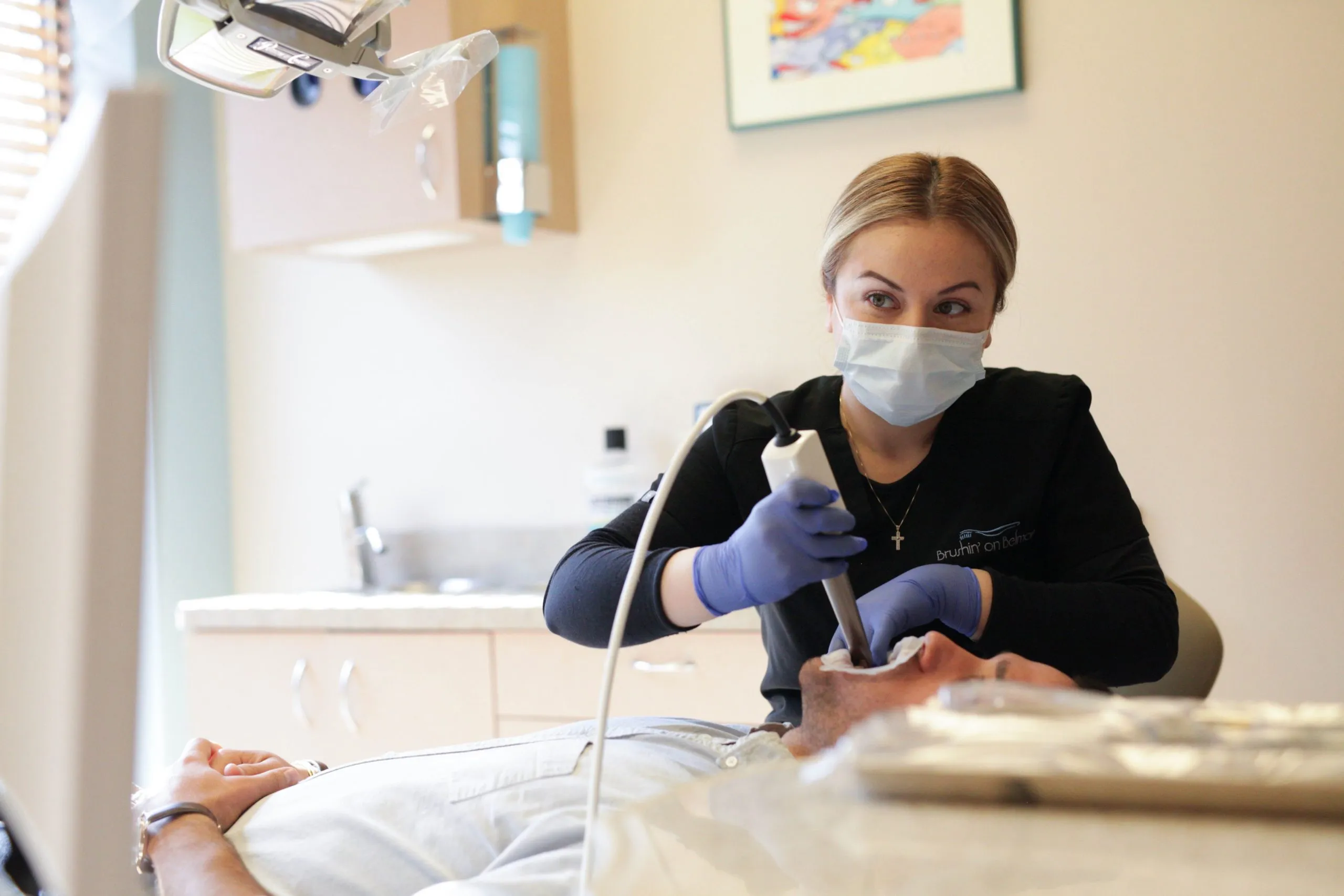Understanding Professional Teeth Whitening
Professional teeth whitening at the dentist is a cosmetic dental procedure designed to lighten the shade of your teeth, removing stains and discoloration caused by various factors. Unlike over-the-counter products, professional whitening offers more potent bleaching agents and supervised application, ensuring both effectiveness and safety. The process involves the use of specialized whitening gels or solutions, often activated by light or laser, to penetrate the enamel and break down stain molecules. This results in a noticeably brighter and more radiant smile. This method is popular among people who want to improve their smile appearance and boost their confidence, as it offers quick and significant results. The treatment is performed under the supervision of a dental professional, guaranteeing that the process is tailored to your specific needs and that any potential risks are properly managed. Understanding the nuances of professional teeth whitening empowers you to make informed decisions about your dental health and cosmetic goals.
What is Professional Teeth Whitening?
Professional teeth whitening encompasses a range of procedures performed by dentists to significantly enhance the brightness of your teeth. This goes beyond simple cleaning and focuses on bleaching the enamel, the outer layer of your teeth, to remove stubborn stains and discoloration. Dentists utilize higher concentrations of bleaching agents, typically hydrogen peroxide or carbamide peroxide, which are more effective than those available in over-the-counter products. This enhanced potency, combined with professional application and monitoring, allows for more dramatic and longer-lasting results. These treatments are often customized to the individual’s needs, considering factors like the type of stains, the natural shade of the teeth, and the patient’s overall oral health. The ultimate goal is to achieve a whiter, healthier-looking smile that boosts the patient’s confidence and overall well-being. This is more than a simple cosmetic procedure, it’s an investment in your self-esteem and oral health.
Types of Professional Teeth Whitening Procedures

Dentists offer two primary types of professional teeth whitening procedures: in-office whitening and at-home whitening kits. Each method has its advantages, catering to different preferences and schedules. In-office whitening, also known as chairside bleaching, involves a quick and effective treatment performed entirely within the dental clinic. This method often utilizes a high-concentration bleaching agent, sometimes activated by a special light or laser, to accelerate the whitening process. At-home whitening kits, provided by the dentist, offer a more gradual approach. These kits include custom-fitted trays and a lower-concentration bleaching gel, allowing you to whiten your teeth at your convenience. The dentist supervises the process, ensuring safe and effective use. The choice between these methods depends on your desired results, time constraints, and budget. Both options are far superior to over-the-counter products in terms of effectiveness and safety, delivering a brighter and healthier smile.
In-Office Whitening
In-office whitening is a fast-acting, highly effective teeth whitening procedure performed directly in the dentist’s office. The process begins with the dentist protecting your gums and soft tissues, followed by the application of a strong bleaching agent to the teeth. Often, a special light or laser is used to activate the bleaching agent, speeding up the whitening process. The entire procedure typically takes about an hour, with results visible immediately after. This method is ideal for those seeking immediate and dramatic results. The dentist closely monitors the process, ensuring the safety of your teeth and gums. In-office whitening is perfect for individuals who want a quick cosmetic boost before an important event or those seeking the most effective whitening treatment available. This is often the most popular choice for its convenience and its remarkable immediate results.
At-Home Whitening Kits (Provided by Dentist)
At-home whitening kits, dispensed by your dentist, offer a more gradual and convenient approach to teeth whitening. The dentist will create custom-fitted trays designed to perfectly fit your teeth, ensuring the bleaching agent stays in contact with the tooth surfaces. You’ll be provided with a bleaching gel of a specific concentration, and instructions on how to use it. The process typically involves wearing the trays for a set amount of time each day or night, as instructed by your dentist, over a period of a few weeks. Although the results are less immediate than in-office whitening, at-home kits offer a cost-effective and flexible solution. The dentist will monitor your progress and provide guidance throughout the process, ensuring your teeth are whitening safely and effectively. This method is ideal for those who prefer a more controlled, gradual whitening process that fits their lifestyle.
Top 5 Amazing Benefits of Teeth Whitening at Dentist

Boost Confidence with a Brighter Smile
One of the most significant benefits of professional teeth whitening is the boost to your self-esteem. A brighter, whiter smile can dramatically improve your confidence in social and professional settings. When you feel good about your smile, you’re more likely to engage with others openly and positively. Studies show that people with whiter teeth are often perceived as more attractive, successful, and approachable. The positive impact on self-image can extend to all areas of your life, from your personal relationships to your career aspirations. Achieving a brighter smile through professional whitening is a straightforward way to invest in your self-confidence and overall well-being. The enhanced appearance can lead to a greater sense of self-assurance, making you more comfortable in various situations.
Effective and Long-lasting Results
Professional teeth whitening delivers superior and more durable results compared to over-the-counter products. Dentists use higher concentrations of bleaching agents, which are more effective at penetrating the enamel and removing deep-seated stains. The results are often visible immediately after the in-office procedure and can last for extended periods, typically several months to a few years. The longevity of the whitening effect depends on various factors, including your dietary habits, oral hygiene practices, and the type of whitening treatment used. Regular maintenance, such as touch-up treatments and avoiding stain-causing foods and beverages, can help extend the lifespan of your brighter smile. Professional whitening guarantees consistent and reliable outcomes, giving you the best return on your investment in a brighter smile.
Enhanced Oral Health and Hygiene

Visiting your dentist for professional teeth whitening is a great opportunity to have your overall oral health assessed. During the consultation and whitening process, your dentist will examine your teeth for any underlying issues, such as cavities or gum disease. This proactive approach allows for early detection and treatment of potential problems, which can prevent more serious complications down the line. Moreover, professional teeth whitening can motivate you to improve your oral hygiene habits. After investing in a brighter smile, you’re more likely to maintain it by brushing, flossing, and scheduling regular dental check-ups. This heightened awareness of your oral health can contribute to a healthier mouth and prevent future dental problems, ultimately promoting your overall well-being. This is a preventative investment in your oral and overall health.
Personalized Treatment and Professional Guidance
A key advantage of professional teeth whitening is the personalized treatment plan you receive from your dentist. Your dentist assesses your specific needs, taking into account the type and severity of stains, the sensitivity of your teeth, and your overall oral health. This ensures that the whitening procedure is tailored to your unique situation, maximizing effectiveness while minimizing potential risks. Professional guidance extends beyond the procedure itself. Your dentist will advise you on the best way to care for your newly whitened teeth, including dietary recommendations and tips for maintaining a brighter smile. This expert support helps you achieve and sustain the results you desire. The dentist’s expertise offers reassurance and support throughout the entire process.
Safe and Supervised Procedures
Professional teeth whitening is performed under the supervision of a trained dental professional, ensuring a safe and controlled environment. Dentists are equipped with the knowledge and tools to minimize the risk of side effects, such as tooth sensitivity and gum irritation. They will protect your gums and soft tissues during the whitening process and carefully monitor your progress. Dentists use only FDA-approved products and techniques. In contrast, over-the-counter whitening products may not be as safe or effective. With professional whitening, you can rest assured that your dental health is the top priority. This supervision ensures the safest approach to whitening and reduces the potential for damage to your teeth or gums. This ultimately promotes the long-term health and beauty of your smile.
The Teeth Whitening Process Step-by-Step

Initial Consultation and Assessment
The first step in professional teeth whitening is a thorough consultation with your dentist. During this visit, the dentist will examine your teeth and gums to assess your overall oral health. They’ll identify any existing dental issues, such as cavities or gum disease, that need to be addressed before whitening. Your dentist will also discuss your goals and expectations for teeth whitening, helping to determine the most appropriate treatment plan. This step is essential to ensure that you are a good candidate for the procedure and to set realistic expectations for the results. The dentist will also take photos and potentially impressions of your teeth to document the pre-whitening shade, which helps in tracking the progress and results. This initial assessment ensures that the whitening process is both safe and effective.
The Whitening Procedure
Depending on whether you opt for in-office or at-home whitening, the procedure will vary slightly. For in-office whitening, the dentist will first isolate your teeth by protecting your gums and soft tissues. A high-concentration bleaching agent is then applied to the teeth, and a special light or laser is often used to activate the whitening process. The procedure typically takes about an hour, with multiple applications of the bleaching agent. For at-home whitening, custom-fitted trays are created to hold a lower-concentration bleaching gel. The dentist will provide instructions on how to use the trays and the recommended duration of treatment, which can range from several days to a few weeks. Regardless of the method, the dentist will closely monitor your progress throughout the process, offering advice and adjustments as needed.
Post-Treatment Care and Maintenance

After professional teeth whitening, proper care is crucial to maintain the results and prevent future staining. Your dentist will provide specific instructions on how to care for your newly whitened teeth. It’s common to experience some tooth sensitivity immediately after the procedure, which typically subsides within a few days. You may be advised to avoid certain foods and beverages that can stain your teeth, such as coffee, tea, red wine, and dark-colored sauces, for a period of time. Maintaining excellent oral hygiene, including brushing twice a day and flossing daily, is essential. Regular dental check-ups and cleanings will also help preserve your brighter smile. By following your dentist’s instructions and adopting a proactive approach to oral health, you can enjoy your dazzling, white smile for an extended period.
Cost and Considerations
Factors Influencing Cost
The cost of professional teeth whitening varies depending on several factors. The type of whitening procedure (in-office versus at-home) is a primary determinant, with in-office treatments generally costing more due to the time, materials, and expertise involved. The location of the dental practice and the dentist’s experience also influence the price. The severity of the discoloration, the number of treatments needed, and the use of any additional technologies (such as laser activation) can also affect the overall cost. Before undergoing teeth whitening, it is crucial to discuss the total cost with your dentist and understand the payment options available. Some dental insurance plans may cover a portion of the cost, particularly if the whitening is deemed medically necessary, but this is rare. Financing options and payment plans can help make professional teeth whitening more accessible.
Is Teeth Whitening Right for You?

Who is a Good Candidate?
Teeth whitening is a suitable cosmetic procedure for many individuals seeking a brighter smile. Good candidates generally have healthy teeth and gums, with stains or discoloration caused by aging, genetics, or lifestyle factors such as coffee, tea, and tobacco use. Those with extrinsic stains, which affect the surface of the teeth, often see the most dramatic results. Individuals who are looking to boost their confidence and improve their overall appearance are also excellent candidates. However, it’s essential to consult with a dentist to determine whether teeth whitening is appropriate for your specific oral health needs and goals. The dentist will assess your dental history and provide personalized recommendations.
Who Should Avoid Teeth Whitening?
While teeth whitening is safe for many people, it’s not suitable for everyone. Individuals with existing dental issues, such as cavities, gum disease, or significant tooth sensitivity, may need to address these problems before undergoing whitening. Pregnant or breastfeeding women should generally avoid teeth whitening. People with certain types of dental restorations, such as veneers or crowns, may not see uniform whitening results, as the bleaching agents do not affect these materials. Individuals with severe tooth discoloration caused by internal factors, such as certain medications or dental trauma, may find that whitening is less effective. A consultation with your dentist will determine if there are any contraindications for teeth whitening based on your oral health.
Conclusion
Professional teeth whitening at the dentist offers a safe, effective, and convenient way to achieve a brighter, more confident smile. From boosting self-esteem and providing long-lasting results to enhancing oral health and providing personalized care, the benefits are numerous. Understanding the different types of procedures, the step-by-step process, and the factors to consider will help you make an informed decision. Whether you opt for in-office or at-home whitening, consulting with your dentist is crucial to determine if teeth whitening is the right choice for you and to develop a treatment plan tailored to your unique needs. Investing in professional teeth whitening is an investment in your self-image and overall well-being. Embrace the power of a radiant smile!
